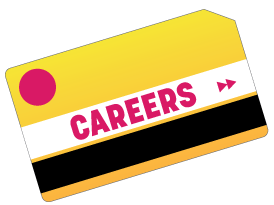
Audiology is the science of hearing, balance and related disorders. Audiologists are experts in the nonmedical diagnosis and management of disorders of the auditory and balance systems.
They frequently work with other medical specialists, speech-language pathologists, educators, engineers, scientists and allied health professionals and technicians. In industrial audiology, audiologists plan and execute programs of hearing conservation for workers.
Audiologists specialize in:
- Identifying and assessing hearing and balance problems
- Rehabilitating persons with hearing and balance disorders
- Preventing hearing loss
Clinical audiologists work in a variety of settings and can specialize in pediatrics, geriatrics, balance, cochlear implants, hearing aids, tinnitus and auditory processing, among other issues. Audiologists provide a number of services including:
- Evaluating hearing
- Counseling patients and their families and caregivers
- Fitting hearing aids
- Evaluating and treating balance disorders
- Determining an individual’s need for assistive devices
- Teaching communication strategies, including speech reading
Working Conditions
Audiologists work in a wide range of settings, including health care settings, educational facilities and in government agencies. They typically work 40 to 50 hours per week; some work part-time.
As communication professionals, audiologists have the unique opportunity to:
- Work with other medical and rehabilitation professionals to care for patients.
- Provide services to a range of age groups, from newborns to adults.
- Counsel and educate patients and their families and caregivers.
- Use technology to evaluate and treat communication and related disorders and conduct research in communication sciences and disorders.
- Develop skills to serve as supervisors, mentors or administrators.
Academic Requirements
If you are in high school, you should decide what your major will be. Some colleges and universities offer an undergraduate degree in communication sciences and disorders (CSD), but it’s not necessary. However, if you do not major in CSD, you may need to complete some prerequisites before applying to graduate school.
Audiologists must earn a doctoral degree (an AuD) from a program accredited by the Council on Academic Accreditation and get a passing score on a national examination. The American Speech-Language Hearing Association (ASHA) provides a listing of accredited schools offering an AuD program.
Those individuals who have a graduate degree with major emphasis in audiology (e.g. AuD) may become certified by the Council for Clinical Certification, which issues Certificates of Clinical Competence for both audiology and speech-language pathology.
In almost all states, a current license in audiology or speech-language pathology is also required to practice.
Planning Your Education in CSD provides more details about academic requirements for audiologists and speech language pathologists.
Learn More About a Career as an Audiologist
- Watch a video that features audiologists discussing what they do and why their career is rewarding.
- Watch a video of a school audiologist discussing her career.
- Watch a video of a private practice audiologist describing her career and why she likes it.
- Get more information about a career in audiology from the American Speech-Language-Hearing Association.

